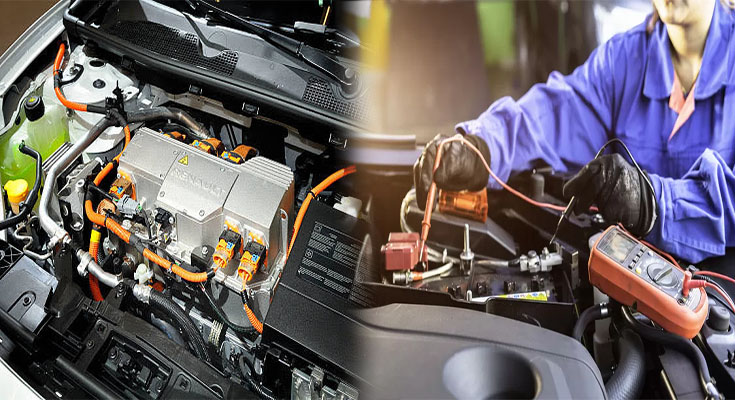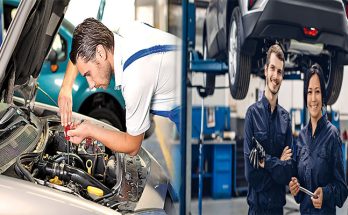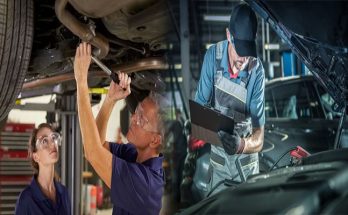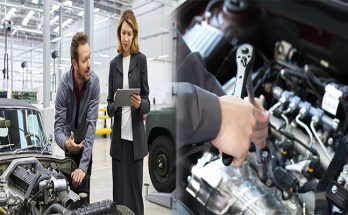As the automotive industry shifts towards greener and more sustainable transportation options, there is a growing demand for skilled professionals who can service and maintain hybrid and electric vehicles. To meet this need, specialized courses focusing on hybrid and electric vehicle technology have emerged in recent years. These courses provide aspiring automobile mechanics with the knowledge and skills required to understand and work on these advanced vehicles. If you are interested in pursuing a career in this field, here is a breakdown of some key automobile mechanic courses for hybrid and electric vehicles:
1. Introduction to Hybrid and Electric Vehicle Technology
This entry-level course provides a comprehensive overview of hybrid and electric vehicle technology. Topics covered include the principles of electric motors, battery systems, regenerative braking, aerodynamics, and hybrid powertrain architectures. Students will learn about the key components of hybrid and electric vehicles and gain a foundational understanding of how they operate.
2. Hybrid and Electric Vehicle Diagnostics
This course delves into the diagnostic procedures specific to hybrid and electric vehicles. Students will learn how to use specialized diagnostic tools and equipment to identify and troubleshoot issues. Emphasis is placed on understanding and interpreting diagnostic trouble codes (DTCs) related to high-voltage systems, battery management systems, electric motors, and power electronics.
3. Battery Systems and Maintenance
A significant aspect of hybrid and electric vehicle technology revolves around the battery systems. This course explores the various types of batteries used in hybrid and electric vehicles, their construction, operation, and maintenance. Students will gain hands-on experience in battery diagnostics, testing, and replacement procedures.
4. Electric Motor Systems and Controls
Understanding electric motor systems and controls is essential for working on hybrid and electric vehicles. This course covers the fundamental principles of electric motor operation, motor controllers, and motor control strategies. Students will learn how to diagnose and repair electric motor systems, including motor disassembly, testing, and reassembly.
5. Hybrid and Electric Vehicle Safety
Safety is paramount when working with high-voltage systems present in hybrid and electric vehicles. This course focuses on safe operating procedures, hazard recognition, and emergency response related to hybrid and electric vehicle servicing. Students will learn about insulation testing, lockout/tagout procedures, and personal protective equipment (PPE) requirements to ensure a safe working environment.
6. Advanced Diagnostic and Repair Techniques
Building on the foundational knowledge gained in previous courses, this advanced course focuses on intricate diagnostic and repair techniques specific to hybrid and electric vehicles. Students will learn how to troubleshoot complex issues related to power electronics, high-voltage wiring, charging systems, and hybrid powertrain integration. Hands-on training and real-world scenarios will sharpen their skills in dealing with cutting-edge technology.
7. Industry Certification Preparation
Many automobile mechanic courses for hybrid and electric vehicles also offer preparation modules for industry certification exams. Examples include certifications from organizations like the Automotive Service Excellence (ASE) and the Institute of the Motor Industry (IMI). These certifications validate the expertise and knowledge of mechanics in hybrid and electric vehicle technology, boosting their career prospects.
8. Ongoing Continuing Education
As hybrid and electric vehicle technology continues to evolve rapidly, it’s essential for automobile mechanics to stay updated on the latest advancements. Ongoing continuing education programs and workshops can help professionals stay abreast of emerging technologies, new diagnostic tools, and repair procedures specific to hybrid and electric vehicles.
With the increasing popularity of hybrid and electric vehicles, specialized courses for automobile mechanics have become a necessity. Pursuing these courses can open doors to exciting career opportunities and provide mechanics with the skills required to thrive in the ever-evolving automotive industry. By enrolling in such programs and staying committed to continuous learning, automobile mechanics can position themselves at the forefront of this transformative shift in transportation technology.





